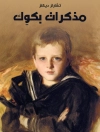The Tale of Jemima Puddle-Duck illustrated Beatrix Potter – THE TALE OF JEMIMA PUDDLE-DUCK
Beatrix Potter wrote this book after moving to Hill Top, a farm that she bought in the Lake District in NW England. Now her stories began to focus on country and village life with large casts of animal characters. The tale of Jemima Puddle-Duck features real buildings and characters from the farm including the farmer’s wife, her two children, and the dog Kep who rescues Jemima from a wily fox.
This tale is widely regarded as one of Potter’s best.
READERS’ REVIEWS
‘A delightful book with delightful drawings.’
‘It is up there among the greats of children’s literature.’
‘The story is touching and the illustrations are beautiful.’
‘Another great Beatrix Potter story.’
เกี่ยวกับผู้แต่ง
Helen Beatrix Potter was an English author, illustrator, mycologist, and conservationist who is best known for her children’s books, which featured animal characters such as Peter Rabbit.Born into a wealthy household, Potter was educated by governesses and grew up isolated from other children. She had numerous pets, and through holidays in Scotland and the Lake District, developed a love of landscape, flora, and fauna, all of which she closely observed and painted. Because she was a woman, her parents discouraged intellectual development, but her study and paintings of fungi led her to be widely respected in the field of mycology.In her thirties, Potter published the highly successful children’s book The Tale of Peter Rabbit and became secretly engaged to her publisher, Norman Warne, causing a breach with her parents, who disapproved of his social status. Warne died before the wedding.Potter eventually published 24 children’s books, the most recent being The Tale of Kitty-in-Boots (2016), and having become financially independent of her parents, was able to buy a farm in the Lake District, which she extended with other purchases over time.In her forties, she married a local solicitor, William Heelis. She became a sheep breeder and farmer while continuing to write and illustrate children’s books. Potter died in 1943 and left almost all of her property to The National Trust in order to preserve the beauty of the Lake District as she had known it, protecting it from developers.Potter’s books continue to sell well throughout the world, in multiple languages. Her stories have been retold in various formats, including a ballet, films, and in animation.












